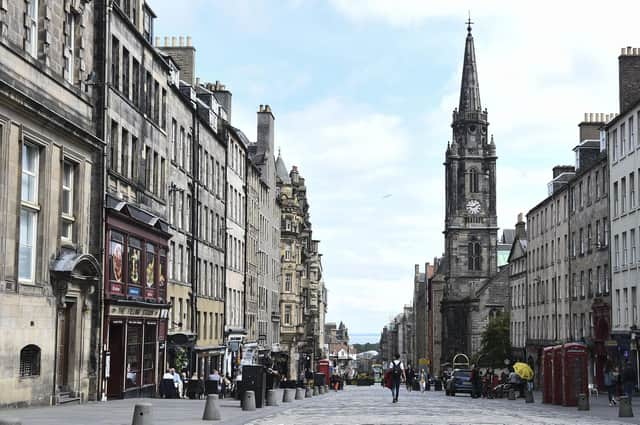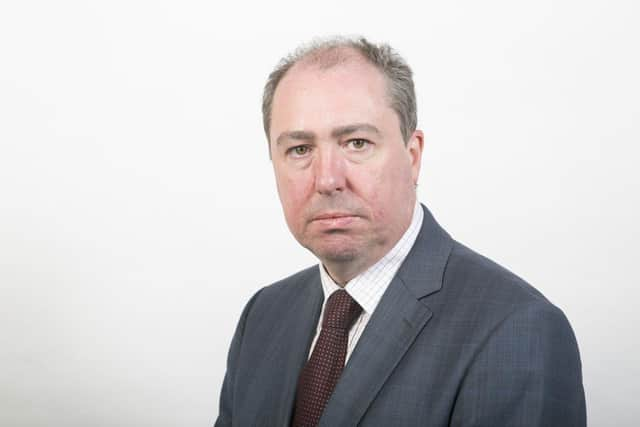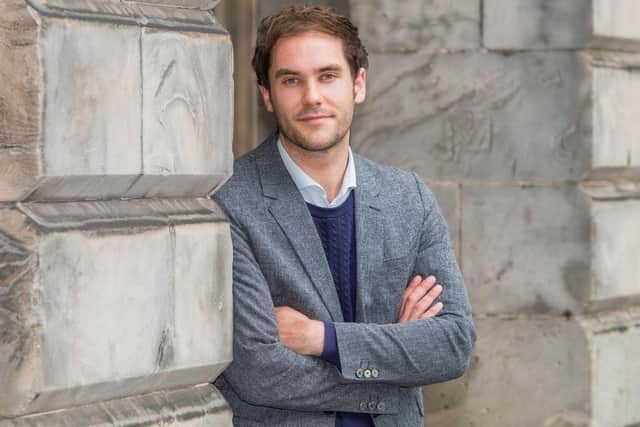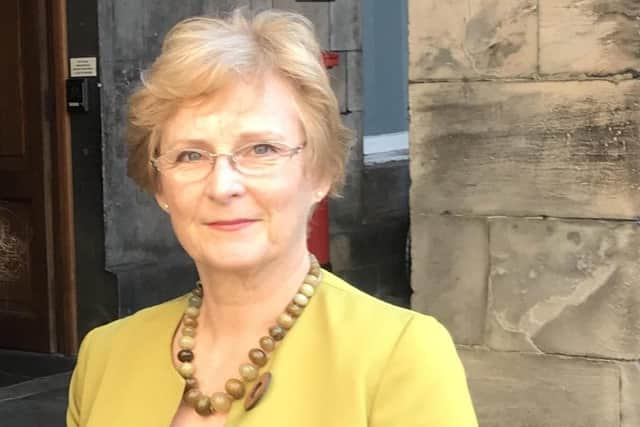Edinburgh councillors call for more 'transparency' on Covid-19 level three decision


At a meeting of Edinburgh City Council’s policy and sustainability committee, councillors were presented with the capital’s coronavirus statistics leading up to November 20, in particular the five criteria the Scottish government uses to determine regional lockdown levels.
These include: the number of cases per 100,000 people; the test positivity rate; the future cases per 100,000 people; the number of people likely to need acute hospital care in future weeks; and the number of people likely to need intensive care in future weeks.
Advertisement
Hide AdAdvertisement
Hide AdEach statistic is then designated a level, depending on severity. For Edinburgh, just four of the five statistics were assessed at level three leading up to November 20, but Scottish ministers decided the capital should stay at level three as a whole.


Up to November 20, Edinburgh five key coronavirus statistics were:
Cases per 100,000 people: 90, level two
Test positivity rate: 5.3 per cent, level three
Future cases per 100,000 people, forecast for November 22-28: one, level one


Number of people likely to need acute hospital care in future weeks: zero, level zero
Advertisement
Hide AdAdvertisement
Hide AdNumber of people likely to need intensive care in future weeks: zero, level zero
As part of a report on the council’s adaptation and renewal programme, which was presented to councillors at the meeting, Conservative councillors fielded an amendment which called on council leader Adam McVey to ‘seek clarity from the Scottish Government on the necessary requirements for moving to level two’.
Council leader McVey, who represents Leith, said: “In a sense I don’t think it will take us any further forward, other than causing a time delay when I write to the Scottish government to get something crystallised, as the chief executive is on a call daily with Public Health, and is very clearly able to articulate to members what that process looks like, what the decision looks and what different factors are in play, because there will be no set formula to give an outcome on this.


“There’s a multitude of examples that anyone can give in terms of permutations but the central figure which is being watched most closely is the contraction rate per 100,000 population, but there are other, much more acute considerations, within that.
Advertisement
Hide AdAdvertisement
Hide Ad“It isn’t the be-all and end-all because NHS capacity, care home capacity are also watched incredibly carefully to make sure that the balance is right.”
Inverleith councillor, and chair of the council’s Conservative group, Iain Whyte, said: “It doesn’t matter what level we’re in, if that level is appropriate for the advice being given, but the level is ultimately decided by a politician.
“The decision is taken by government, there is advice from Public Health expert obviously, and we hope that all of that advice is followed pretty closely and taken into consideration.
“The paper that sets out the various criteria for deciding the levels, if you look, it is not clear why Edinburgh is in level three - it would suggest that Edinburgh should be in level two and indeed, the stats are all at that level or below, and the key stat, the infections per 100,000 has been at the bottom of level two throughout that period.
Advertisement
Hide AdAdvertisement
Hide Ad“That means it is very hard for the public, or business owners who are closed because of this, to understand the reasoning behind this. That’s what I’d like to be made public.”
Morningside councillor Melanie Main, Green Party, said isolated outbreaks in some of Edinburgh’s neighbourhoods could be contributing to the decision to remain at level three.
She said: “We need as much transparency as we possibly can because the public need to understand and have confidence going forward, and to bring them with us.
“I agree there’s a framework and there’s data, but if you actually look at the cases per 100,000, and the neighbourhoods across Edinburgh, although the rate across the city is low there are still 27 neighbourhoods in Edinburgh that have over 100 cases per 100,000 and I think it’s important we understand what the situation is for the city.”
Advertisement
Hide AdAdvertisement
Hide AdDrum Brae and Gyle councillor Robert Aldridge, Liberal Democrats, said: “I think we’re all desperate for Edinburgh, as soon as is practical, to be put into level two.
“In four out of the five criteria, Edinburgh has consistently fallen well within level two or below and on one of them is just on the threshold between level two and three, for a consistent period of time.
“It’s not clear to me whether there are other criteria which has not been explained to us, but I think for the sake of Edinburgh remaining as one of the most compliant cities in the UK, we need to respect the people of Edinburgh and give them the information on which these decisions are being based.”
Council leader Adam McVey added: “Thankfully in the last few days we’ve seen those numbers creep downwards.
Advertisement
Hide AdAdvertisement
Hide Ad“That dip downwards is the thing we’ve been talking about for some weeks now, as the thing that we needed to get our level down, and open up more of our economy and enjoy more of our freedom together.
“I’m very aware from meeting government officials, and I met the Deputy First Minister this morning on this very issue, the nuances about some of the isolated outbreaks, about knowing what they are or not knowing what they are, is again some of the issues Public Health issues are having to grapple with. “
Joseph Anderson, Local Democracy Reporting Service
A message from the Editor:
Thank you for reading this article. We're more reliant on your support than ever as the shift in consumer habits brought about by coronavirus impacts our advertisers.
If you haven't already, please consider supporting our trusted, fact-checked journalism by taking out a digital subscription.
Comment Guidelines
National World encourages reader discussion on our stories. User feedback, insights and back-and-forth exchanges add a rich layer of context to reporting. Please review our Community Guidelines before commenting.